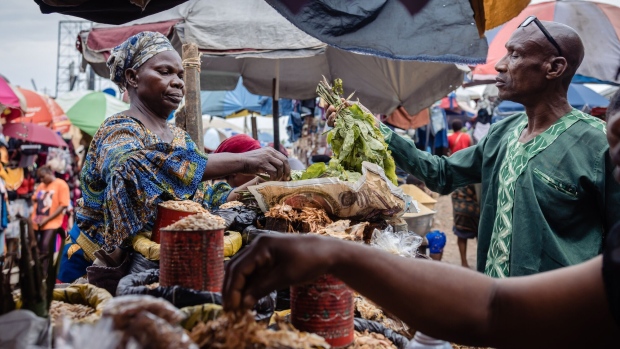Mar 5, 2024
IMF Urges Nigeria to Immediately Address Growing Food Insecurity
, Bloomberg News

(Bloomberg) -- Nigeria’s government must urgently address growing food insecurity, with almost one in 10 people facing hunger, the International Monetary Fund said.
Nigeria is implementing a series of economic reforms that have fuelled a cost of living crisis in Africa’s most populous nation. The removal of fuel subsidies and liberalization of currency controls, while welcomed by foreign investors, has spurred inflation that accelerating at the fastest pace in nearly three decades.
“With about 8% of Nigerians deemed food insecure, addressing rising food insecurity is the immediate policy priority,” the IMF said in a statement on Monday. The recent approval of a social-protection system that will provide cash transfers to vulnerable households is “an important step toward addressing this and implementation will be crucial.”
Read more: Nigeria’s Top Rice Dish Doubles in Cost as Inflation Hits Home
Amid annual food price inflation of 35.4%, the spiraling cost of living has triggered sporadic protests across the country and looting of food reserves in areas including the capital, Abuja. At least 40% of Nigeria’s population of more than 200 million live in extreme poverty.
Nigeria’s central bank last week raised interest rates to a record 22.75% to rein in inflation and support the naira, which has lost about 70% of its value against the dollar since the government began implementing currency reforms in mid-2023. Further increases in official borrowing costs are likely, according to Bloomberg Economics.
Read More: Nigeria’s Bold Rate Hike Confirms Focus on Lower Inflation
“The decision by the monetary policy committee to further tighten monetary policy will help contain inflation and pressures on the naira,” the IMF said.
©2024 Bloomberg L.P.








